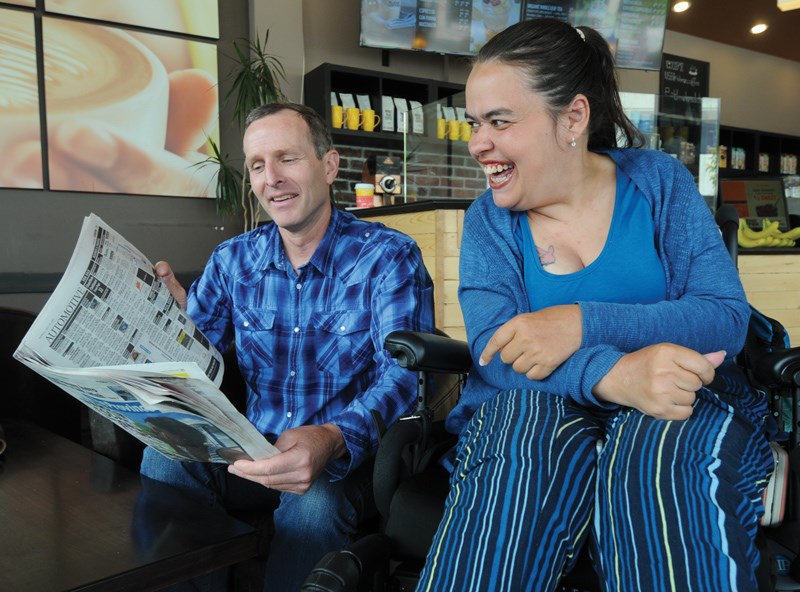The accident took only seconds and the outcome was instant.
When David Parke wiped out on his mountain bike in 2010 he knew right away he was paralyzed from the neck down.
After hyperextending his spinal cord, he spent six weeks in hospital unable to move before starting to show signs of improvement. After an extensive period of treatment, primarily at Vancouver General Hospital and GF Strong Rehabilitation Centre, Parke made impressive gains. Two and a half months after the crash he was able to start walking again, and is now considered an incomplete quadriplegic.
The North Vancouver resident has the use of all his limbs back. Although he still has some paralysis, he says you would never know it if you saw him walking down the street.
Parke considers himself very lucky and has been involved with disability advocacy since his recovery.
In 2014, he completed a Ride for Spine to raise money and awareness for those impacted by spinal cord injuries. Getting back in the saddle, he set off on his bicycle from Dease Lake in northern B.C. in early June and completed an approximately 1,750-kilometre journey by the end of the month. Money raised went to support Spinal Cord Injury B.C., a non-profit organization that offers a variety of programs supporting individuals affected by spinal cord injury. It also offers resources for their families.
These days, Parke is a program assistant with the ConnecTra Society and is working closely with community connector Louisa Bridgman to spread the word about the organization’s new Employment Mentorship Program, which is currently seeking volunteer mentors.
The program is a partnership with UBC’s department of occupational therapy and occupational science.
It pairs volunteer mentors with people who have physical disabilities and are in pursuit of employment, training, education, recreation, and increased social involvement. Typical support includes researching community resources, assisting with job searches and paperwork, and registering for supports such as employment services. Mentors require previous job experience and a clear criminal record check.
Parke explains that volunteers help participants detail short- and long-term goals and take steps toward them.
“The primary focus and the goal is to try to get physically disabled people out of their homes, and hopefully work because everyone likes to wake up and feel like they’re a component of the overall,” says Parke.
The program is a three-year initiative, and once the data is compiled it will be used to set some government policy and procedures within the way certain programs are run.
“The door should swing a little wider due to some of this information that’s being collected,” notes Parke. “It’s breaking down barriers.”
The next volunteer orientation is on Aug. 27. For more information contact Parke at [email protected], 604-839-0557.



